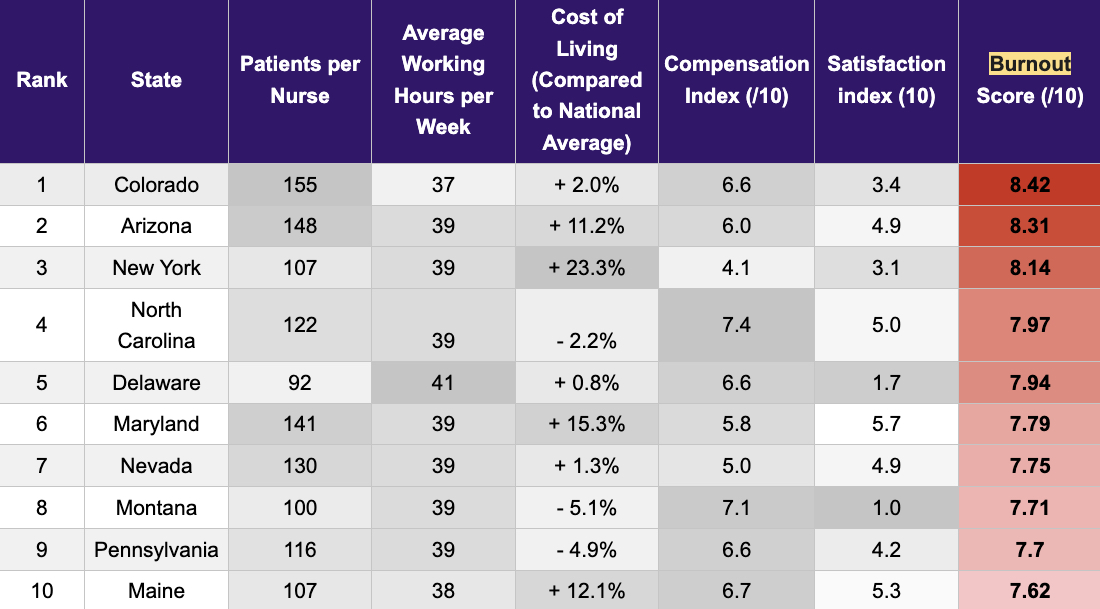
What You Should Know:
– A new study from Nursa has identified the U.S. states where nurses are most likely to experience burnout, with Colorado topping the list. The analysis reveals surprising insights into how factors like compensation, job satisfaction, patient load, and cost of living intersect to impact nurses across the country.
– With nearly a third (31.5%) of U.S. registered nurses leaving the profession due to burnout, experts at Nursa developed a comprehensive burnout score for each state. This score combines multiple data sources and metrics to reflect the World Health Organization’s (WHO) definition of burnout, which is characterized by feelings of exhaustion, increased mental distance from one’s job, and reduced professional efficacy.
Colorado, Arizona, and New York Top the List
Colorado earns the title of nurse burnout capital with a score of 8.42/10. Each nurse in the state is responsible for approximately 155 patients, the second-highest ratio nationwide. This heavy workload, combined with a higher cost of living and moderate compensation, contributes to a worryingly low job satisfaction score of just 3.4/10.
Arizona follows closely with a burnout score of 8.31/10. Nurses there care for an average of 148 patients and face a cost of living 11.2% higher than the national average, leading to high-stress conditions.
New York ranks third with a score of 8.14/10. While the patient load is lighter, nurses contend with longer hours and a cost of living 23% above the national average, which, combined with low compensation, results in high burnout risk.
Where is Burnout Risk the Lowest?
Rhode Island stands out as the state least at risk of nurse burnout, with a score of 4.46/10. Despite longer average workweeks and a high cost of living, nurses in Rhode Island care for significantly fewer patients (91 per nurse). Most notably, 93% of nurses surveyed reported high job satisfaction, earning a perfect 10/10 on the Satisfaction Index.
The report suggests that the key to sustaining low levels of nurse burnout may not be solely generous compensation, but rather the ability to maintain a manageable workload.
Methodology
Nursa’s experts calculated a burnout score for each state by creating three distinct indices: a Compensation Index, a Satisfaction Index, and a Cost of Living Index. These were combined with other metrics like patients per nurse and emotional strain scores. Metrics with stronger ties to burnout, such as the compensation and satisfaction indices, were weighted more heavily in the final calculation.
